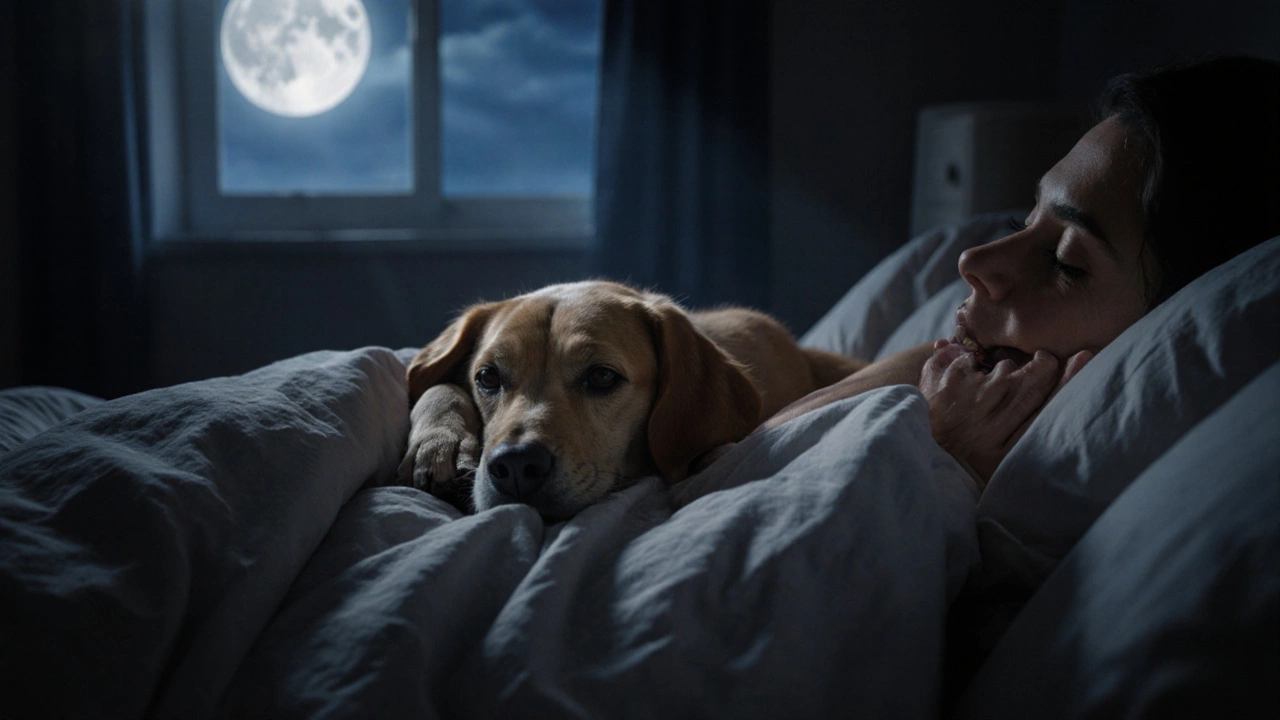Dog Bed Habits: Why Your Dog Sleeps the Way They Do and What It Means
When your dog curls up in their dog bed, a designated sleeping space designed for canine comfort and support. Also known as pet bedding, it’s more than just a cushion—it’s where your dog feels safest, most relaxed, and most themselves. But why do some dogs refuse to use it? Why do others drag blankets around like they’re building a nest? These aren’t quirks—they’re dog bed habits rooted in instinct, health, and emotion.
Your dog’s sleeping choices tell you a lot. A dog that sleeps on the floor might have joint pain they’re not showing. One that insists on sleeping at your feet is showing loyalty and pack bonding. A dog that digs at their bed before lying down? That’s a leftover behavior from wild ancestors who flattened grass to make a safe, cozy spot. Even the shape of their bed matters—some dogs prefer round dog beds, a circular design that allows dogs to curl up tightly, mimicking the security of a den, while others stretch out in rectangular dog beds, a flat, spacious layout that gives room to sprawl, ideal for larger or older dogs. These aren’t just style choices—they’re physical and emotional needs in action.
And it’s not just about where they sleep. How often they change spots, whether they steal your pillow, or if they suddenly avoid their bed altogether—all of it connects to their well-being. Older dogs might skip their bed because arthritis makes getting up hard. Anxious dogs might cling to your laundry pile because it smells like you. Even the texture of the fabric matters—some dogs hate memory foam because it’s too soft, others can’t sleep without it because their hips need support. These habits aren’t random. They’re signals. And ignoring them can mean missing early signs of pain, stress, or aging.
What you’ll find in the posts below are real, practical insights from dog owners and vets who’ve seen these habits up close. You’ll learn how to tell if your dog needs a new bed, why certain shapes work better for certain breeds, and how to fix common problems like restless nights or refusal to use their sleeping space. No fluff. No guesswork. Just clear, actionable advice based on what actually works for dogs and their humans.

Does Letting Your Dog Sleep in Your Bed Cause Separation Anxiety?
Letting your dog sleep in your bed doesn't cause separation anxiety. The real issue is emotional dependence and fear of being alone. Learn how to tell the difference and what actually helps.
View more